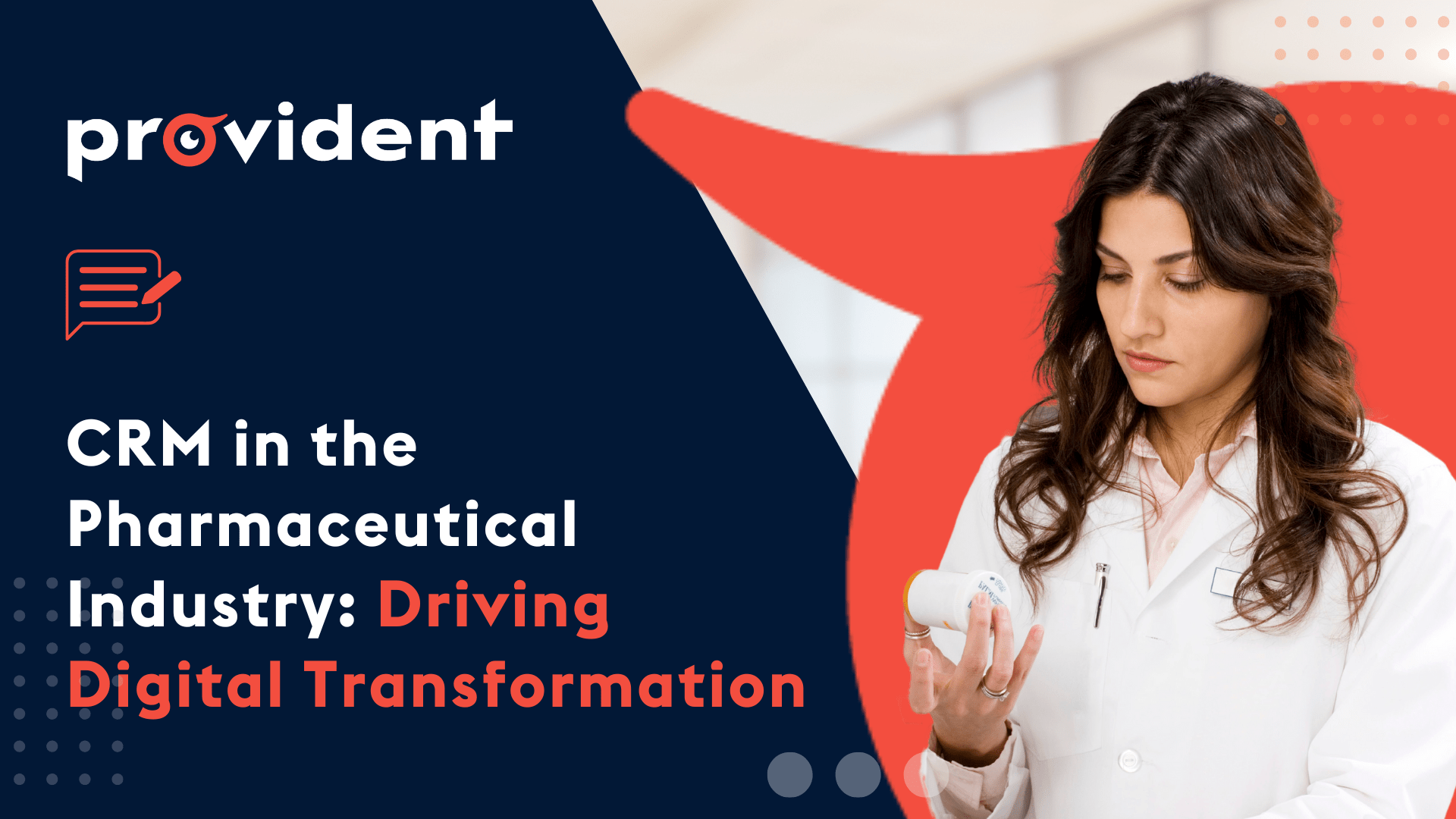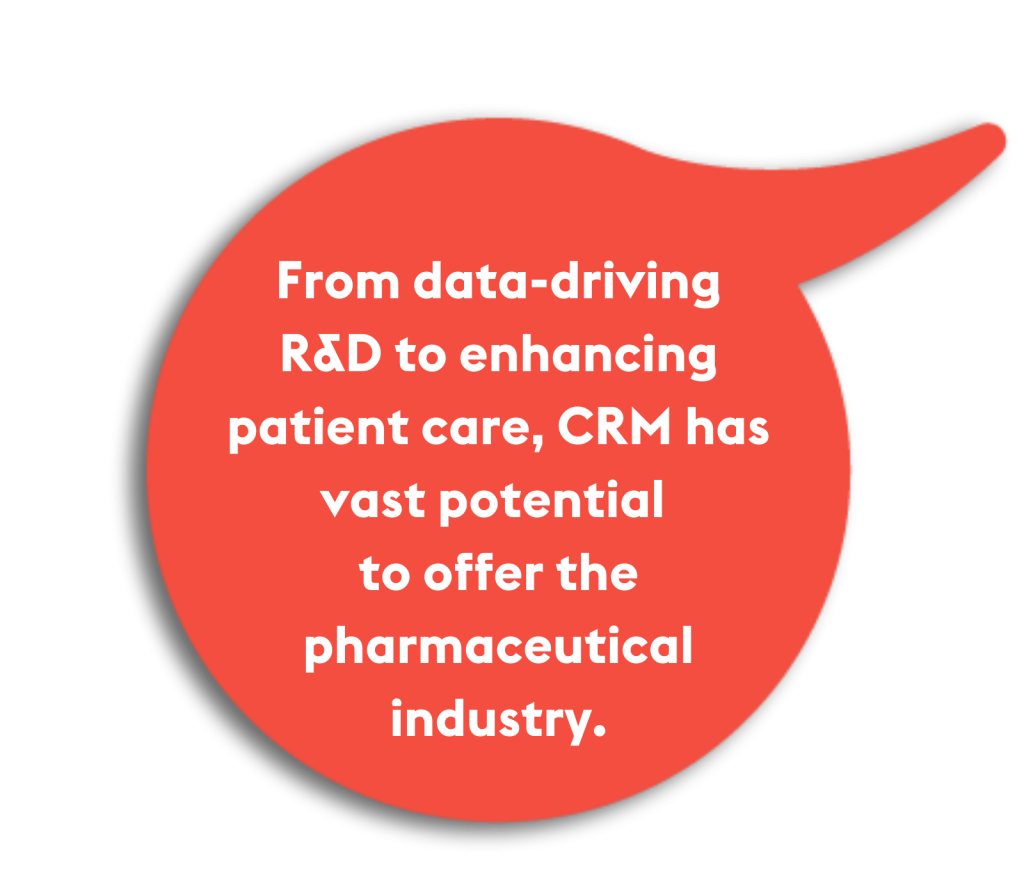
Pharmaceutical, medical and life sciences companies have been no strangers to disruption in recent years. Monumental challenges have driven unavoidable shifts and adaptations. A critical shortage of qualified staff, coupled with intensified competition in the global marketplace, have been key motivators for reshaping business management. Managing evolving legal and regulatory requirements, navigating rapid shifts in market dynamics and maintaining control of operating costs simply add to the pressure.
To adapt, grow and deliver optimal service to medical professionals, healthcare establishments and, of course, patients themselves, market and consumer insights are indispensable. So, while Customer Relationship Management (CRM) solutions may not necessarily be top of mind for industry players, their benefits shouldn’t be overlooked.
As the path to strengthening relationships with key stakeholders, ensuring stringent data security and guiding revenue growth, CRM is a crucial component of digital transformation success in the pharmaceutical industry.
CRM systems are foundational technology that enables and supports automating industry-specific sales activities, business processes and administrative tasks.
We’ve highlighted 5 core elements of CRM’s role in the pharmaceutical sector here, from driving revenue growth to shaping meaningful communications:
1. Supporting consistent revenue growth
A tailored CRM solution helps improve customer acquisition and retention, driving a steady increase in revenue. Pharmaceutical companies with accurate and segmented customer data are better positioned to recognise and focus on high-value deals. With enhanced customer insights, cross-selling and upselling can naturally evolve across the sales cycle.
Thorough CRM analytics also facilitate evaluating and implementing cost-efficient revenue channels, optimising the time and resources your teams allocate to nurturing customer relationships.
2. Safeguarding crucial customer databases
In biotechnology and pharmaceutical companies, information is constantly moving between departments — from clinical to support and from marketing to operations.
With each exchange between disparate, legacy systems, however, there’s a risk of data loss, deletion or breach. Dealing with vast quantities of strictly regulated data, the industry needs a compliant and centralised solution. CRM software provides this, ensuring data security and accuracy.
3. Meeting accelerating market demands
Faster product testing and roll-out, optimising quality, minimising expenses. The sole route to meeting these nuanced market demands is through efficient data and stakeholder management.
CRM can help: with the ability to gather feedback on existing products, dosages and treatments, your CRM system can inform your business from the product innovation stage through to last-mile logistics.
4. Leveraging 360° customer insights
Solid CRM foundations provide a complete view of contact history, patterns and trends. With secure, unified data that tracks each customer interaction, progressing from prospect to loyal client becomes an intuitive process.
Knowing precisely how, when and where customers prefer to hear from you also underpins rolling out a sophisticated omnichannel experience.
5. Shaping meaningful messaging
Meaningful two-way communication between pharmaceutical businesses and medical professionals starts with the right content, at the right time, via the right channels.
With a CRM solution in place, campaigns can be individualised for specific demographics and customer profiles (health professionals, key opinion leaders, clinics, patients). Overall, boosting customer engagement across your pharmaceutical products and services.
In line with CRM’s multifaceted role, its potential benefits are equally wide-ranging. Put into practical terms, a key selection includes:
✓ Centralising secure data for pharmaceutical products, suppliers and customers
Save your internal teams time with a single source of truth. Collect, store and manage organised, accurate and standardised information, serving all departments from one location.
No matter the employee, team, location or need, the data will be there ready with the insights required.
✓ Enhancing network relationships
Increase visibility on your interactions with leads, suppliers and stakeholders. Maintain strong and meaningful connections with contacts through reminders and personalised communications.
✓ Increasing productivity and ROI
Empower your operations team to better manage its supply chain, quality control and sales forecasts. Improve large stock inventory management, identifying and prioritising customised client orders.
✓ Promoting products and services via automated marketing campaigns
Align activities between sales and marketing to generate measurable results.
✓ Building better brand experiences
Shape optimised product and service offers and deliver contextualised messages via the most relevant communication channels for your various audiences.
✓ Delivering a proactive, customer-centric approach
Achieve stand-out service with rapid access to customer tickets and real-time issue updates.

At Provident CRM, we’ve helped organisations in the pharmaceutical and healthcare sectors implement CRM solutions for centralising care services systems, connecting communication channels and enhancing data security.
Our digital CRM solutions are cloud-based, which has provided greater clarity on total cost of ownership (TCO), increased data governance capabilities and resilience to ransomware attacks. Data security, control and access monitoring are vital for health sector bodies; requirements that must remain watertight, while simultaneously working to evolve past data silos and enable greater transparency and efficiency.
We’ve also worked with local and national authorities to give patients the ability to communicate with various online services instead of via telephone, leverage social media to spread important information and roll out voicebot services that interact with a patient/caller as if they were speaking to a human. Overall, better managing rising demands for elective healthcare services, reducing pressure on providers and improving service delivery.
An integrated, automated CRM solution for healthcare bodies can also alleviate call centre workloads. Automatic appointment reminders to patients enable callers to focus on confirming and allocating slots for procedures, not only reducing monetary, personnel and clinical costs but also helping to save lives.
From data-driving R&D to enhancing patient care, CRM has vast potential to offer the pharmaceutical industry.
We’ve supported hundreds of organisations to implement tailored CRM solutions, ensuring they gain maximum value from their software. While starting from scratch with CRM can seem daunting, the Provident CRM team is on hand for end-to-end guidance. We also provide extensive staff training and customisation that works at an industry and business level, smoothing your change management pathway to CRM adoption.
To find out more about choosing the right CRM software for your organisation, don’t hesitate to contact our team.